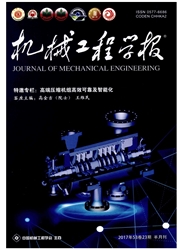

 中文摘要:
中文摘要:
利用单项式容积法的积分点,通过回归求解混沌多项式(Polynomial chaos expansion,PCE)系数,提出一种构造PCE的高效方法。该方法解决了概率配点法和随机响应面法的两大问题:①当采用加权余量法构造PCE时,须要用高斯积分法求数值解,但是高斯积分点个数随变量维数增加而呈幂次递增,而单项式容积法积分点的数量比较接近PCE系数的个数,所以能够有效降低原始模型的计算或模拟次数;②因为概率配点法和随机响应面法只抽取了部分高斯点,不同的取法可能会产生不同的结果。由于单项式容积法只需要少量积分点,故可以全部抽取,不存在取样差异的问题。通过具有精确解的数学算例的计算对比,结果表明该方法不但显著减少模拟次数而且精度与MonteCarlo方法相当。将该方法应用于行李箱后盖外板成形质量的容差预测,验证了该法在工程应用中的可行性。
 英文摘要:
英文摘要:
An efficient method for constructing polynomial chaos expansion (PCE) is proposed. The polynomial coefficients are obtained by regression method using points of monomial cubature rules. The proposed method has two advantages over probabilistic collocation method (PCM) and stochastic response surface method (SRSM). Firstly, when PCE is constructed by using weighted residual method, sampling points of PCM and SRSM are these points of Gauss quadrature, which is exponential growth of the number of dimensions. Monomial cubature rules contrastively reduce integration points. Secondly, PCM and SRSM counts on the heuristic technique to select collocation point due to more points available when the number of dimension increases, at the end the point is selected randomly. Monomial cubature rules only need a few points, which can be sampled entirely. As compared with a mathematical example in which exact solution is available, this method can remarkably reduce the times of simulation and its accuracy is comparable to that of Monte Carlo method. The approach is applied to the tolerance prediction of the formability of a car deck-lid outer panel.
 同期刊论文项目
同期刊论文项目
 同项目期刊论文
同项目期刊论文
 期刊信息
期刊信息
